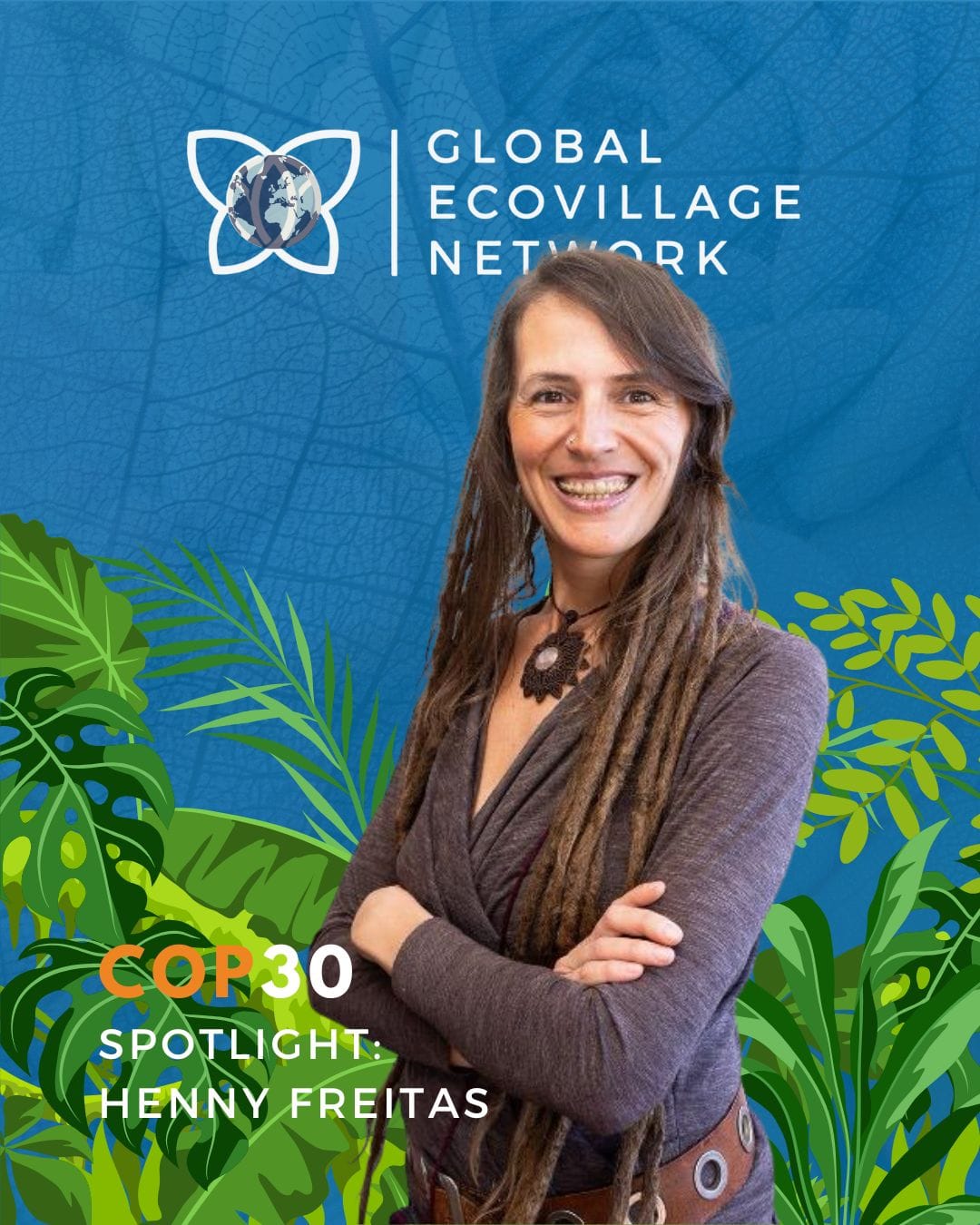Presenting Proven Climate Solutions: 30 Years of Regenerative Living

The Global Ecovillage Network (GEN) brings nearly three decades of proven climate solutions to COP30 in Belém, Brazil. With 6,000+ communities connected across 114 countries, we demonstrate that ecovillages are not experimental alternatives, they are mature, scalable responses to the climate crisis, ready for mainstream policy integration.
Our 2024 Impact:
- 252 new ecovillages joined our network
- 1,295 communities now mapped globally
- Active presence in 135 countries across 6 regions
- Recognized by the UN since 1996 as a “Best Practice” for sustainable development
The climate crisis demands proven solutions, not just promises. Ecovillages work. Let’s scale them.
At COP30, we call on governments to:
- Recognize ecovillages as strategic climate infrastructure in national climate plans
- Establish National Ecovillage Agencies to support and scale regenerative communities
- Reform land laws to protect and facilitate ecovillage development
- Include ecovillage representatives in national climate policy development
- Allocate climate finance to support ecovillage networks and expansion

Three Pillars of Ecovillage Climate Action
- Strengthening Connections for Collective Resilience Building networks that enable communities to share knowledge, resources, and support systems essential for climate adaptation.
- Demonstrating Regenerative Effects Proving through lived experience that ecovillages actively restore ecosystems, sequester carbon, and create abundance while reducing ecological footprint.
- Opening Pathways to Regenerative Living Making sustainable community living accessible and replicable through education, policy frameworks, and demonstrated models.

While climate policy continues to reduce life to carbon math, GEN helped carry a clear message – the regenerative transition the world needs is already happening in communities worldwide. What’s missing now is recognition, respect for life, and the political courage to follow their lead.
A Personal Look at What COP30 Leaves Us With by Arun Ruz
Beyond the Negotiations: Ecovillages as Real Climate Solutions at COP 30
GEN at COP30: Advancing Policy Frameworks for Regenerative Communities”
GEN supports Brazilian ecovillage networks in their advocacy for legal recognition and protection. With Henny Freitas contributing expertise, Brazilian partners have developed a comprehensive dossier proposing national frameworks adapted to Brazil’s legal landscape—building on successful models in Senegal and Togo.
This national-level advocacy complements GEN’s grassroots networking approach, recognizing that scaling regenerative solutions requires both peer-to-peer learning and enabling policy environments. Different contexts call for different strategies, and we celebrate Brazil’s leadership in developing policy solutions appropriate to its unique challenges.
Read the full dossier and learn more about the proposal here.
Get a glimpse of the empowering stories and teachings from COP30, “Empowering Youth and Local Communities for Adaptation, Regenerative Action & Climate Resilience.” In this powerful conversation, young leaders and community changemakers share their stories, strategies, and solutions, demonstrating how youth and grassroots action are driving real-world innovation for a thriving planet. Watch, share, and be inspired to support this wave of leadership.

Flagship Projects Demonstrating Climate Solutions
Ecovillage Resilience 2030
Preparing communities for +2.5°C climate scenarios through:
- Adaptive capacity building
- Resource management strategies
- Inter-community support networks
- Documentation of climate-adapted practices
Youth in Action: Sprouts for the Future
Engaging next-generation climate leaders through:
- 1,000+ youth trained in regenerative practices
- Mentorship programs connecting youth with established ecovillages
- Innovation hubs for climate solutions
- Digital platforms for global youth collaboration
River of Life: Women-Led Regeneration
Centering women’s leadership in climate action:
- Women’s empowerment programs in 45+ communities
- Sharing indigenous and traditional ecological knowledge
- Economic resilience through cooperative enterprises
- Documenting women-led climate innovations
Kincentric Leadership
Developing leadership models rooted in:
- Interconnection with living systems
- Indigenous wisdom and practices
- Regenerative decision-making processes
- Cultural diversity and bioregional awareness
Big Thanks to our Supporting Organizations
- Gaia Education & GARN – Education and research
- CASA Brasil – National branch of GEN in Brazil
- ABRASCA – Brazilian Association of Alternative Communities
- UN Habitat – Long-term recognition partner
- National Programs: Senegal National Ecovillage Agency, Togo Ministry partnerships
- Flor do Anhumas Institute for sustainable practices
- Atlantic Forest Regenerative Communities Coalition for the climate
- International Center for Innovation and Development of cities MIL-USP
Representing GEN at COP30

HeNNy Freitas
Brazil
Secretary, Board of Trustees
Administrative Support for COP

Rob Wheeler
USA
UN Representative, Board of Trustees

Anna Kovasna
Strategic Lead
Keystone Communities Lead

Leave a Reply